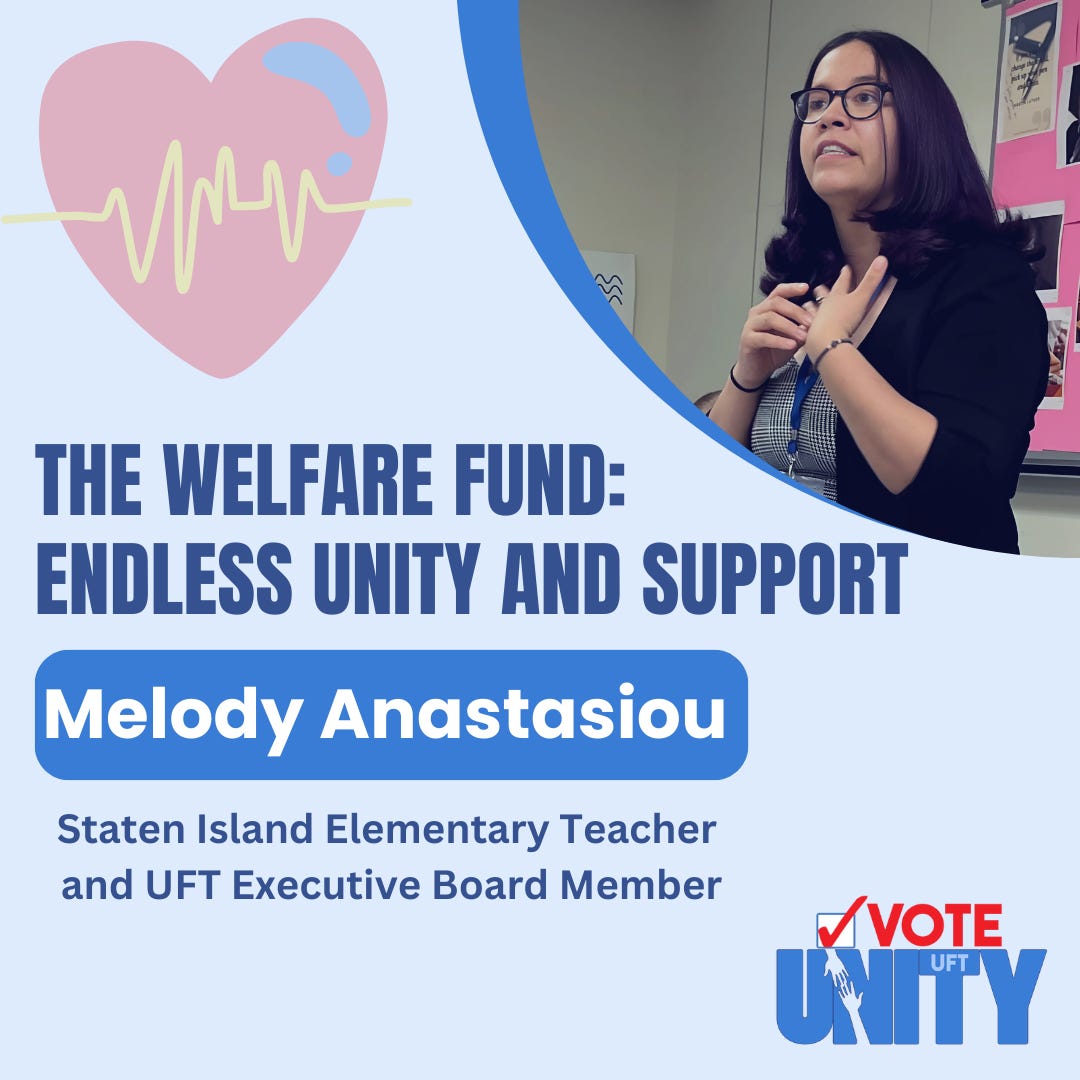The Welfare Fund: Endless Unity and Support
"Throughout my entire career I have operated as a disabled educator, but it wasn’t until five months ago that I considered going out on disability" - Melody Anastasiou, Special Educator / UFT Exec Bd
Melody Anastasiou is an Elementary Special Educator in Staten Island and is a member of the UFT Executive Board. This year Melody will be running again on the Unity Caucus slate
There isn’t anyone who hasn’t been touched by illness or injury. We have all had to care for someone, whether it be a parent with cancer, a child with the flu, or a grandparent with Alzheimer’s. What if you were the one who was sick? I have been teaching for over fifteen years and for almost all of those years I have been living with fibromyalgia. It is estimated that approximately 10 million people live with fibromyalgia in the United States and that approximately 80 million people suffer from chronic pain. I am very lucky that with time, treatment and a supportive team of medical professionals, family and friends I have been able to maintain a full time job as a teacher for the NYCDOE. Not everyone is this fortunate.
In 2019, I was diagnosed with a new disease, rheumatoid arthritis. About 1.3 million people in the United States have rheumatoid arthritis. When I was first diagnosed, just the feeling of struggling to hold my own children was devastating. When dealing with chronic illness, there are ups and downs. Now, at this point in my life, it is the opinion of my medical team that I am probably also now suffering from lupus.
Throughout my entire career I have operated as a disabled educator, but it wasn’t until five months ago that I considered going out on disability. It is reported that an estimated 50 million people suffer from an autoimmune disorder, and I’m such an overachiever that I have four. And the only reason I am able to continue working is because of the UFT Welfare Fund. I have been through four medications for my rheumatoid arthritis, and am currently on my fifth.
In August, my doctor requested an authorization of a new medication, Orencia, that we were sure would help, but it was denied. Insurance companies like to play stupid games, but I won the stupid prizes. As insurance companies often do, they suggested a different medication, Actemra, which did nothing. For three months I suffered with this medication. Upon returning to my doctor, we decided to try the Orencia authorization again, but this time I called for backup and contacted the UFT Welfare Fund. After explaining how dire my situation was, a representative from the Welfare Fund personally advocated on my behalf and took the lead on my appeal. Thankfully, my doctor had a few samples of Orencia on hand, allowing me to try the medication and confirm that it would work for me. I just needed that authorization to keep this potentially life-changing treatment going. Gratefully, I am able to say that due to the tireless efforts, and personal care that the Welfare Fund took with my appeal, my medication was authorized successfully, and I, thankfully, am able to continue teaching. Now, most patients with autoimmune diseases get only a few years of efficacy from a new medication, but I welcome this reprieve so that I may continue my career. If in the future, I need to change medications again, I know that I will have the support of the UFT Welfare Fund and the relief I get from this assurance is immeasurable.




